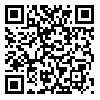Volume 12, Issue 2 (8-2021)
JAP 2021, 12(2): 62-77 |
Back to browse issues page
Ethics code: IR.IAU.NAJAFABAD.REC.1399.049
Download citation:
BibTeX | RIS | EndNote | Medlars | ProCite | Reference Manager | RefWorks
Send citation to:



BibTeX | RIS | EndNote | Medlars | ProCite | Reference Manager | RefWorks
Send citation to:
Tofangchi M, Raeisi Z, Amir G, Hasan R. The casual relationship between self-compassion and self-criticism among female patients with tension-type headaches using structural equation modeling. JAP 2021; 12 (2) :62-77
URL: http://jap.iums.ac.ir/article-1-5571-en.html
URL: http://jap.iums.ac.ir/article-1-5571-en.html
1- PhD Student in Psychology, Department of psychology, Najafabad Branch, Islamic Azad University, Najafabad, Iran.
2- Assistant Prof., Department of Psychology Najafabad Branch, Islamic Azad University, Najafabad, Iran. ,z.tadbir@yahoo.com
3- Assistant Prof., Department of Psychology of Children with Special Needs. Faculty of Educational Sciences and Psychology, University of Isfahan, Isfahan, Iran.
4- Assistant Prof., Department of Psychology Najafabad Branch, Islamic Azad University, Najafabad, Iran.
2- Assistant Prof., Department of Psychology Najafabad Branch, Islamic Azad University, Najafabad, Iran. ,
3- Assistant Prof., Department of Psychology of Children with Special Needs. Faculty of Educational Sciences and Psychology, University of Isfahan, Isfahan, Iran.
4- Assistant Prof., Department of Psychology Najafabad Branch, Islamic Azad University, Najafabad, Iran.
Abstract: (2702 Views)
Aims and background: As shown in many studies, one of the most important reasons for headaches in individuals is their tendency to self-criticism. Discovering some protective factors in order to moderate this tendency, thus, can be one of the important goals of health psychology research. Therefore, the current study aimed at investigating the relationship between self-compassion and self-criticism in women suffering from tension headaches using structural equation modeling.
Material & Methods: To do so, 110 women with tension-type headaches were selected through purposeful sampling from psychiatric and neurological clinics and specialized headache centers in Isfahan, and were asked to respond to self-compassion and self-criticism questionnaires. The collected data were analyzed using the structural equation modeling (SEM) on Amos and SPSS software programs.
Findings: The results revealed that the presented model fitted the data well. There were negative relationships between positive components of self-compassion (self-kindness, common human humanity, and mindfulness) and self-criticism. On the other hand, there were positive relationships between the negative components of self-compassion (self-judgment, isolation, and over-identification) and self-criticism. The findings showed the research model was appropriately presented.
Conclusions: Therefore, based on the results obtained from the present research, it can be concluded that self-compassion as a protective factor can have a significant impact on self-criticism in women with tension-type headaches.
Material & Methods: To do so, 110 women with tension-type headaches were selected through purposeful sampling from psychiatric and neurological clinics and specialized headache centers in Isfahan, and were asked to respond to self-compassion and self-criticism questionnaires. The collected data were analyzed using the structural equation modeling (SEM) on Amos and SPSS software programs.
Findings: The results revealed that the presented model fitted the data well. There were negative relationships between positive components of self-compassion (self-kindness, common human humanity, and mindfulness) and self-criticism. On the other hand, there were positive relationships between the negative components of self-compassion (self-judgment, isolation, and over-identification) and self-criticism. The findings showed the research model was appropriately presented.
Conclusions: Therefore, based on the results obtained from the present research, it can be concluded that self-compassion as a protective factor can have a significant impact on self-criticism in women with tension-type headaches.
Type of Study: Original |
Subject:
Special
Received: 2021.01.20 | Accepted: 2021.04.20 | Published: 2021.08.1
Received: 2021.01.20 | Accepted: 2021.04.20 | Published: 2021.08.1
Send email to the article author
| Rights and permissions | |
 |
This work is licensed under a Creative Commons Attribution-NonCommercial 4.0 International License. |






